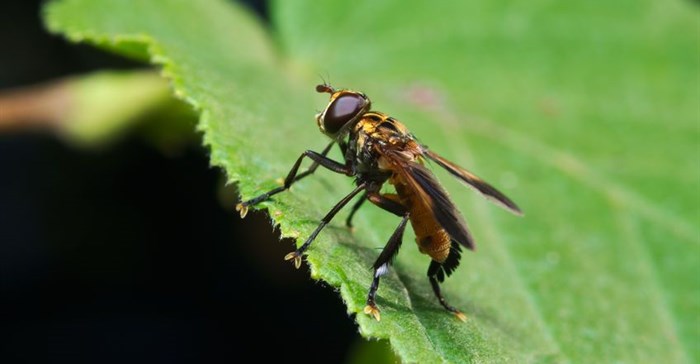
Top stories






More news









Logistics & Transport
Uganda plans new rail link to Tanzania for mineral export boost












Sterile insect technique (SIT), for example, is a method used to reduce the number of agricultural pests by releasing laboratory-reared, infertile insects into agricultural environments, to mate with wild individuals, which will result in the production of infertile eggs, and thus no further progeny.
These programmes benefit South African agriculture such as citrus, and the table grape industry as well as the economy by enabling the production of high-quality fruit with less chemical insecticide input. This in turns makes South African fruit more marketable in foreign countries and appetising here at home.
Similarly, biological control agents, or beneficial insects which feed on and kill weeds and pest insects, are an excellent replacement for chemical herbicides and insecticides. Weed biocontrol agents, for example, are widely utilised throughout South Africa to clear out clogged waterways and other invasive alien plant infestations, especially in areas that are hard to access by other means.
Just as animal production is a science in and of itself, insect mass-rearing is a field which is continually growing and improving with the development of technological advances. There is a growing demand for more sustainable pest control and protein production, and reduction of waste products using insect decomposers. Even butterflies are now replacing confetti at weddings.
The International Insect Rearing Workshop (IIRW), held annually at Mississippi State University, USA celebrated its 20th session in 2017 and has worked hard to fulfil this demand over the years. The IIRW served as a model for this first South African Insect Mass-Rearing Workshop.
Prof Des Conlong, of the South African Sugarcane Research Institute and Stellenbosch University’s Department of Conservation Ecology and Entomology and Dr Elsje Pieterse of Stellenbosch University’s Department of Animal Science, are two of South Africa’s most experienced and knowledgeable insect rearing experts. Together they attended the IIRW in November 2016 and were encouraged by the founders, Dr Frank Davis, Dr John Schneider and Dr Norman Leppla, to replicate the workshop and adapt it to the South African context.
A year later, from 23 October to 27 October 2017, the first Insect Mass-Rearing Workshop was held in Stellenbosch and was hosted by the IPM Initiative in the Department of Conservation Ecology and Entomology. The workshop brought together 42 attendees from government, private industry and academia from five countries, with expertise ranging from biology and entomology to engineering and economics.
Twelve experts presented lectures on wide-ranging interrelated topics for scientifically based mass insect rearing, which included genetics, physiology, insect nutrition, insectary design, quality control, health and safety and insect pathology. Dr Leppla of the University of Florida, one of the original organisers of the IIRW, was in attendance, and his input and insight from 40 years of experience in insect rearing were invaluable to workshop participants.
In addition to detailed lectures, four practical sessions allowed participants to learn by doing. Two field trips to rearing facilities in Stellenbosch and Cape Town and a few social events in the evenings provided further opportunities for participants to share their experiences and exchange ideas.
Many interesting discussions were sparked throughout the week, focussing heavily on the perception of insect production in South Africa, and how to more effectively streamline the adoption of these beneficial practices into South African industry and culture. Prof Conlong, Dr Pieterse and Dr Leppla are committed to making this workshop an annual event, as there is clearly a demand and an interest in South Africa. Through the network formed in this first workshop, participants will stay in touch and continue to share tips on improved insect rearing in the future.

AgriOrbit is a product of Centurion-based agricultural magazine publisher Plaas Media. Plaas Media is an independent agricultural media house. It is the only South African agricultural media house to offer a true 360-degree media offering to role-players in agriculture. Its entire portfolio is based on sound content of a scientific and semi-scientific nature.
Go to: http://agriorbit.com/